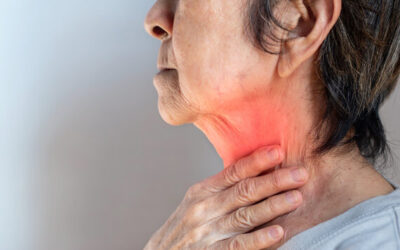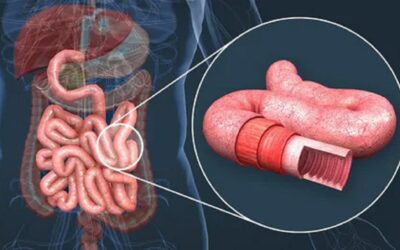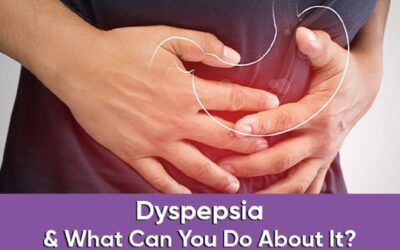Types of Liver Disease and The Role of Diet in Managing Liver Disease

Chronic liver disease is a growing health concern worldwide, with a significant impact on morbidity, mortality and healthcare costs. Diet plays a crucial role in managing chronic liver disease, as it can affect disease progression, symptom severity and quality of life. In this article, we will discuss the role of diet in managing chronic liver disorders, including non-alcoholic fatty liver disease (NAFLD), alcoholic liver disease (ALD) and viral hepatitis.
Non-alcoholic Fatty Liver Disease (NAFLD) –
NAFLD is a common liver disorder characterized by the accumulation of fat in the liver, which can lead to inflammation and fibrosis. NAFLD is strongly associated with obesity, insulin resistance and metabolic syndrome. The main dietary factors that contribute to NAFLD are excessive calorie intake, high intake of refined carbohydrates and saturated fats and low intake of fiber and antioxidants.
The first step in managing NAFLD is to achieve and maintain a healthy weight through dietary and lifestyle modifications. A diet that is low in calories, refined carbohydrates and saturated fats, and high in fiber, fruits, vegetables and healthy fats such as omega-3 fatty acids, can improve insulin sensitivity, reduce inflammation and promote weight loss.
Fiber is particularly important in managing NAFLD, as it can improve insulin sensitivity and reduce the absorption of dietary fats. Good sources of fiber include whole grains, legumes, fruits and vegetables. Antioxidants, such as vitamin E and selenium, can also reduce oxidative stress and inflammation in the liver. Good sources of antioxidants include nuts, seeds, vegetable oils and green leafy vegetables.
Alcoholic Liver Disease (ALD) –
ALD is a liver disorder caused by excessive alcohol consumption, which can lead to liver inflammation, fibrosis and cirrhosis. The main dietary factors that contribute to ALD are excessive alcohol intake, malnutrition and vitamin deficiencies.
The first step in managing ALD is to stop or reduce alcohol consumption. A healthy diet can also improve liver function and reduce the risk of complications. A diet that is high in protein, vitamins and minerals and low in fat and refined carbohydrates, can help to maintain muscle mass, prevent malnutrition, and reduce the risk of liver damage.
Protein is particularly important in managing ALD, as it can help to repair liver cells and maintain muscle mass. Good sources of protein include lean meat, fish, eggs and dairy products. Vitamins and minerals, such as thiamin, folic acid, vitamin B12 and zinc, are also important in managing ALD, as excessive alcohol intake can lead to deficiencies. Good sources of these nutrients include whole grains, leafy vegetables, lean meat and dairy products.
In conclusion, diet plays a crucial role in managing chronic liver disorders. A healthy diet that is low in fat, sugar, salt and high in fiber, fruits, vegetables and whole grains can help to improve liver function and prevent further damage. Moreover, reducing or eliminating alcohol consumption and avoiding processed foods and saturated fats can also help to improve liver health. However, it is important to consult with a healthcare professional or a registered dietitian to develop a personalized diet plan that meets individual needs and goals. A combination of a healthy diet, regular exercise and medical treatment can help to manage chronic liver disorders and improve overall health and well-being.
Pune hospital performs robotic surgery for rare swallowing disorder
Pune Hospital performs robotic surgery for rare swallowing disorder Dr. Prasad Ashok Bhate diagnosed the condition, and Dr. Suprashant Kulkarni performed the surgery recently, an official statement from the hospital said. Aditya Birla Memorial Hospital in Pune...
Understanding the Anatomy of the Duodenum: A Beginner’s Guide
Understanding the Anatomy of the Duodenum: A Beginner’s Guide The duodenum is the first part of the small intestine and plays a crucial role in digestion. It receives chyme, the mixture of food and gastric juice, from the stomach and works with other digestive organs,...
Dyspepsia and What Can You Do About It?
Dyspepsia and What Can You Do About It? Dyspepsia is a common condition that causes pain or discomfort in the upper abdomen. It can be caused by a number of different things, including indigestion, ulcers, and gastritis. There are a number of different treatments...
We're Here Whenever You Need Us
Phone
Open Hours
Morn: 8:30 AM - 09:30 AM (Baner)
Noon: 03 AM - 04:30 PM (PCMC) Even: 6:30 PM - 08:30 PM (Baner)
Baner Address
Sriram Yashadha Building Office No. 2 First Floor, Balewadi Phata Main Baner Road Baner, Pune, Maharashtra 411045
PCMC Address
215, Gera imperium oasis, near Finolex Chauk, Colony, Pimpri-Chinchwad, Maharashtra 411018
Quick Links
Treatment
Make Appointment
About
Services
Contact



